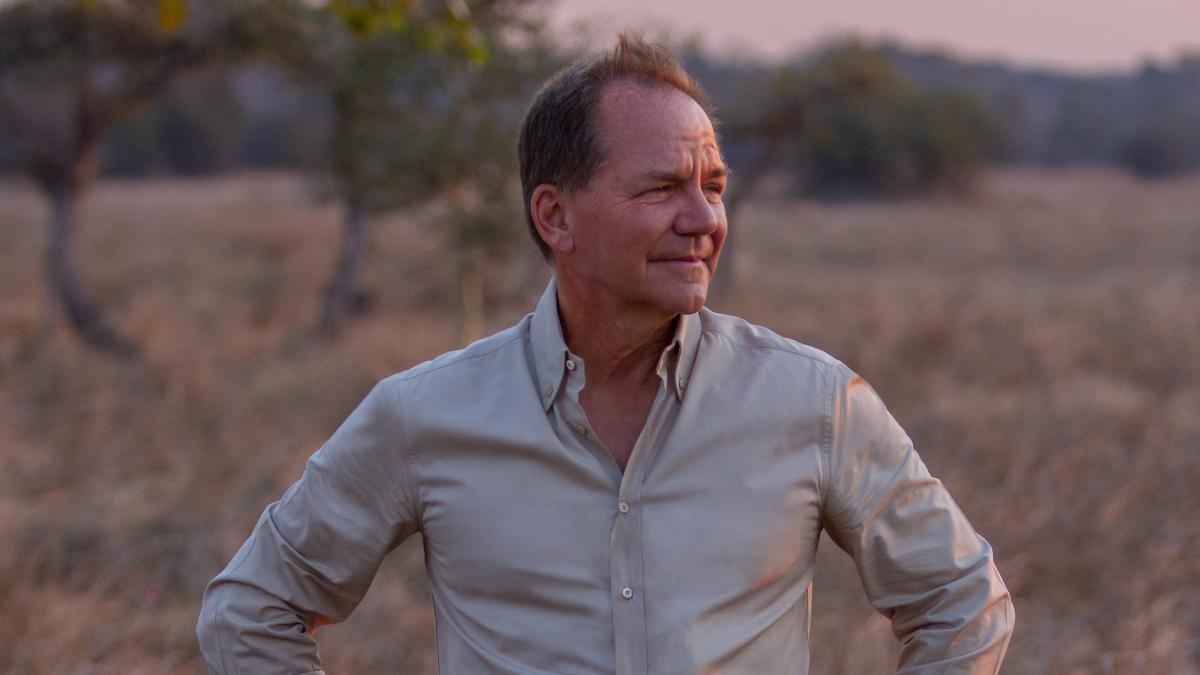Paul Tudor Jones
The business of conservation..
Paul Tudor Jones
Paul Tudor Jones II (born September 28, 1954) is an American billionaire hedge fund manager, conservationist and philanthropist. In 1980, he founded his hedge fund, Tudor Investment Corporation, an asset management firm headquartered in Stamford, Connecticut. Eight years later he founded the Robin Hood Foundation, which focuses on poverty reduction. Later, he was to found two important tourism-based conservation projects in Africa (Malilangwe Trust & The Grumeti Fund, now under the Singita brand)- more on this below:
THE MALILANGWE STORY
The Malilangwe Trust is a wholly Zimbabwean, non-profit organization with focused on harmonizing biodiversity conservation, community development and commercial tourism.
Malilangwe Wildlife Reserve, previously known as as Lone Star Ranch, was founded by Ray Sparrow in 1949. It was initially established as a cattle ranch, but a harsh climate and successive droughts soon made it clear that the land would be best suited for wildlife. The transition to wildlife based land-use commenced in 1985, and over time, cattle were removed and wildlife populations began to recover. The Malilangwe Trust purchased the ranch in 1994, and as part of its mandate began the process of restoring the area to its former glory.The Malilangwe Wildlife Reserve is set on 130 000 acres of pristine wilderness in south-eastern Zimbabwe, bordering the Gonarezhou National Park. It is a diverse and beautiful piece of Africa, boasting geological diversity, habitat variability and a wide variety of plant and animal species. The reserve is dissected east to west by a range of rugged sandstone hills, within which over 80 ancient rock painting sites have been discovered. The Chiredzi River runs the length of the property from north to south, the perennial flows supporting some impressive riverine forest and eventually feeding into the Runde River.
The Malilangwe Reserve is home to a healthy population of endangered black and white rhino, one of the largest populations in Zimbabwe. The suite of predators on the reserve, including lion, cheetah, leopard, hyena and wild dog, keep the abundant herbivore population in check. Giraffe, zebra, impala and wildebeest abound on the Banyini Plains in the centre of the property, while sable antelope and Lichtenstein’s hartebeest are found in the mopane woodlands in the east and south. Malilangwe dam, situated below Singita Pamushana Lodge, is home to several fish species, including the famous Tiger Fish, as well as hosting healthy populations of hippo, crocodile and water birds. During the summer months, elephant breeding herds regularly enjoy leisurely swims at the top end of the dam. The basalt flats in the south of the property offer nutritious grazing for the herbivore population, with herds of 500 buffalo not an uncommon sight in the dry season. The Malilangwe Reserve is unique in terms of its spatial diversity, making each journey on the reserve a new experience. This, coupled with the vastness of the greater Gonarezhou ecosystem and the Great Limpopo Transfrontier Park, makes the reserve truly one of a kind – a gem of African wilderness!PRIMARY OBJECTIVES
• Restore and maintain wildlife populations, ecosystems and ecosystem processes on the estate to the variety and numbers that would have existed prior to post-colonial interventions. • Structure and conduct activities, both on and off the estate, in such a way that conflict with neighbours is minimal and the Trust is considered a real asset to the Lowveld community. • Make a material and lasting contribution to the development of the Zimbabwean Lowveld economy, particularly that of the communities located across the eastern and south-western boundaries of the estate. • Make a significant and lasting contribution to the awareness among Zimbabwe’s young people about the importance and value of the country’s wildlife and cultural resources. • Demonstrate, to all interested parties, that multiple-use wildlife management activities of the Trust are the preferred land use for the estate.THE GRUMETI FUND
The Grumeti Fund is a non-profit organization carrying out wildlife conservation and community development work in the western corridor of the Serengeti ecosystem in Tanzania. Our vision is a world in which people and wildlife live together sustainably, forever.
Today 165 dedicated staff protect, manage and monitor Grumeti’s concessions where the near-barren plains of 15 years ago teem with wildlife once more. Their passion and commitment are driven by a history and led by a mission.Located in the western corridor of the Serengeti ecosystem, a region considered by many to be an international treasure, the Grumeti concessions are bountiful lands, rich in flora and fauna. But they weren’t always this way. At the turn of the century, uncontrolled hunting and rampant poaching had decimated local wildlife populations, in turn plunging the surrounding communities into poverty.
Thankfully, in 2002, American philanthropist Paul Tudor Jones made it his personal quest to rehabilitate and restore the Grumeti concessions to their former glory. He established the non-profit Grumeti Fund to begin the mammoth task of rehabilitating the degraded area, and shortly afterwards partnered with the world-renowned Singita safari brand. This far-sighted partnership, combined with an effective management and law enforcement strategy, has helped animal populations rebound dramatically, turning Grumeti into the ultimate conservation success story and one of the most sought-after photographic safari destinations on the continent.The Mission The mission of the Grumeti Fund is to collaboratively contribute to the conservation of the Serengeti ecosystem and the upliftment of local communities. In partnership with the Tanzanian government and other key stakeholders, we promote conservation best practice and knowledge sharing to optimize impact.
Courtesey: http://www.malilangwe.org/ and https://www.grumetifund.org
ARTICLES OF INTEREST
The wildlife sanctuary bringing rhinos back from the brink (ABC) - Sept 2022.
The Business of Conservation by Paul Tudor Jones 2014



